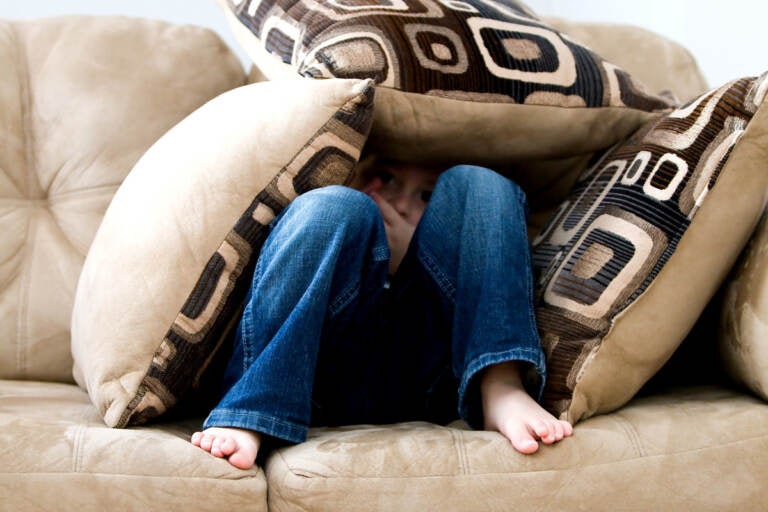Will the kids be all right?
The pandemic continues to take a toll on children’s mental health

The pandemic continues to take a toll on children’s mental health. (Image via Pexels)
This story is from The Pulse, a weekly health and science podcast.
Follow The Pulse on Apple Podcasts, Spotify or wherever you get your podcasts.
Growing up is hard most of the time, but growing up during a pandemic seems particularly tough. The children and adolescents who contract COVID-19 generally suffer less severe symptoms, but the mental strain of more than a year of virus-related disruption should not be understated.
The Kaiser Family Foundation noted in May that 25% of high school students surveyed reported worse emotional and cognitive health because of the pandemic. Twenty percent of parents with children ages 5 to 12 said their children’s mental and emotional health had worsened.
In particular, the pandemic has meant a lot of missing out on the fun parts of being a kid. Seeing friends, after-school clubs and sports, going to the prom, starting college — there’s a laundry list of activities and important milestones that were canceled or delayed. Those delays have left many kids feeling stuck, particularly young people on the cusp of adulthood.
Teresa Hsu-Walklet, psychologist and assistant director for pediatric behavioral health at the Montefiore Medical Group in New York City, says she has seen an increase in children dealing with anxiety, grief, and behavioral issues, as well as eating disorders.
“I did see some young adults who had started college in [last] fall and really struggled. For some, it was because they didn’t have the college experience they were expecting or wanting,” Hsu-Walklet said. “And it just didn’t feel like they were moving forward in the same way.”
Subscribe to The Pulse
This is its own type of grief, Hsu-Walklet said.
“Many of our adolescents didn’t get a graduation, they didn’t get Christmas in the same way, or holidays in the same way. Children didn’t get some of the same family gatherings that they used to,” she said. “There’s also grief for the loss of routines and the loss of time.”
Beyond that, kids are also missing people. According to a joint report from the Centers for Disease Control and Prevention and a number of international agencies and universities, more than 1.5 million children worldwide had lost a primary caregiver during the pandemic as of April 2021.
Dr. Hsu-Walklet noted that grief is different between children and adolescents, and that addressing the situation will be different between age groups. Very young children do not have a strong grasp on the concept of death; they don’t necessarily understand that death is permanent. Very young children need help identifying and labelling emotions, and need support in learning how to cope with those different emotions. Adolescents, on the other hand, do grasp the concept of death and will likely need more in-depth conversations with adults.
In both cases, Hsu-Walklet said, grief is not linear. Grief can spring up unexpectedly in people who seem to be coping. Children who may have been doing well at the start of the pandemic may experience grief again or for the first time when some sense of normalcy returns.
“I think there’s going to be a long-term impact on mental health. I don’t think that all of the fallout is complete. I think as each season is approaching, we’re finding new areas of concern,” Hsu-Walklet said.
To help children cope with this type of loss, Hsu-Walklet stressed the importance of having family support. The better parents and caregivers are able to support the child, the better they fare in dealing with their grief.
WHYY is your source for fact-based, in-depth journalism and information. As a nonprofit organization, we rely on financial support from readers like you. Please give today.






